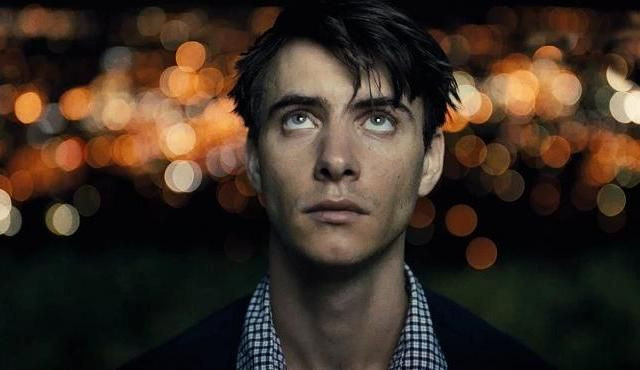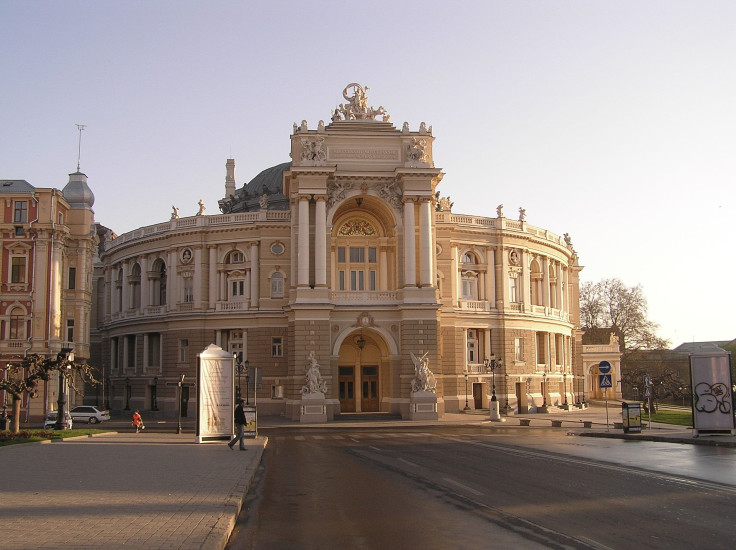Ukrainian Film Festival Opens In Odessa Despite Conflict With Russia

When the film “Maidan” screens at the Odessa International Film Festival next week, the effect will be something like showing a war movie on the battlefield as it’s being fought.
The conflict between Ukraine and Russia sparked by the Maidan uprising last November made its way to Odessa in May when 40 pro-Russian activists were killed in an intentionally set fire in the city’s trade union building. The same month, Russian forces arrested Ukrainian filmmaker Oleg Sentsov in the Crimea and accused him of terrorism; he remains imprisoned in Moscow and so will not be at the Odessa festival.
“Maidan” is one of two films about the Ukrainian uprising that will be screened during a special segment on films about revolutions. The other is the documentary “Black Book of the Maidan.” Also competing are several films from Russia, including “Pussy vs. Putin,” about the imprisonment in Russia of the band Pussy Riot.
The only American film competing is the indie feature “Big Significant Things,” about a young man who goes on a surreptitious road trip through the American South. Its director and producer were initially reluctant to attend due to the violence in Ukraine.

“Big Significant Things” producer Andrew Corkin told International Business Times that friends and family urged him not to go. “I mean, sure, it is an unstable time for a country that has a very rich history,” Corkin said. But in the end, it seemed an irresistible opportunity to see “the true heart of a country,” he said.
Bryan Reisberg, the film’s screenwriter and director, said Odessa is a suitably sized and appropriately offbeat venue for the international premier; the film has previously screened at SXSW in Austin, Texas and at the Independent Film Festival Boston. The film's star, Harry Lloyd (“Game of Thrones” and “Iron Lady”) won't be at the festival; nor will co-producer Daniel-Konrad Cooper.
Reisberg said he researched Odessa before committing to attend andthat along the way he discovered that his great grandparents were born in Zhitomir, about a six-hour drive north of the city. He plans to wear his great grandfather's cufflinks at the festival.
Festival president Viktoriya Tigipko has said the country’s difficulties jeopardized the event, which began in 2010, due primarily to the lack of funding from Ukraine’s cash-strapped government. In the end the festival organizers relied primarily upon corporate sponsors and funds raised in an Indiegogo campaign.
A different, yet related set of problems hampered Moscow’s International Film Festival, which opened on June 22 to a lackluster reception. No Hollywood types participated and attendance was low owing to Western sanctions against Russia for its annexation of Ukraine’s Crimea region.
But if the experience of Ukrainian and Russian filmmakers at this year’s Cannes Film Festival is any indication, art will trump politics among those in attendance in Odessa. At Cannes, filmmakers from both countries expressed solidarity in their craft.
The Odessa festival, which runs July 11-19, starts with Italian director Paoli Virzi’s “Human Capital,” which is based on the eponymous American novel, for which Valeria Bruni Tedeschi won best actress at the Tribeca Film Festival. Other films featured in the opening series come from directors in China, France, Germany, Israel, Mexico, Poland and Ukraine. The festival also includes Ukraine’s national film competition.
Feature films, shorts and documentaries that tend toward “art mainstream” (as the organizers describe them) will be shown in several theaters including Odessa’s opulent opera house and outdoor venues such as the Potemkin Stairs, an architectural marvel (also known as the Primorsky Stairs) that was made famous in the 1920s silent movie “The Battleship Potempkin” about the 1905 mutiny by the ship’s crew against the Russian czar.

Also featured at the festival will be several non-competitive premiers of films from France, Sweden, Russia, the United Kingdom and the United States, including “A Film About Alekseev” by Russian Mikhail Segal, “And So It Goes” by American Rob Reiner and “Boyhood” by American Richard Linklater.
The “Way to Freedom” series features films about revolutions: “Maidan” by Ukrainian director Sergei Loznitsa; “Black Book of the Maidan” by 12 Ukrainian second-year film students; Egyptian Jehame Noujaim’s acclaimed “The Square” about the Tahrir Square uprising in Cairo; and others from Romania, Russia, Slovakia and Switzerland. There are also screenings of films showing in Ukraine for the first time, including two from Russia and one from Georgia – another country that has lost territory to Russia.
And there is the “Forgotten Masterpieces” series, which showcases films made in the USSR between 1927 and 1993, as well as a series that pays tribute to director Stephen Frears, including his cult classic (and early Daniel Day-Lewis flick) “My Beautiful Laundrette.” Frears is officially the festival’s guest of honor.
Though the Odessa festival only began in 2010, its organizers point out that the city has a long tradition in film that began when a local engineer managed to get his hands on a “moving picture” projector in 1894. This year’s event, according to the organizers, will be characterized by “glamour, shine, amazing stars and [an] excited public.” And, if things go according to plan, the drama will unfold only on the screens.
© Copyright IBTimes 2024. All rights reserved.






















